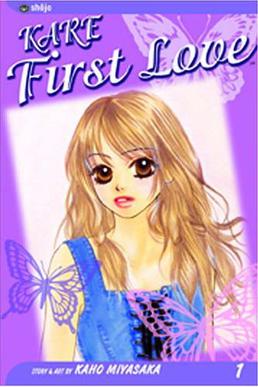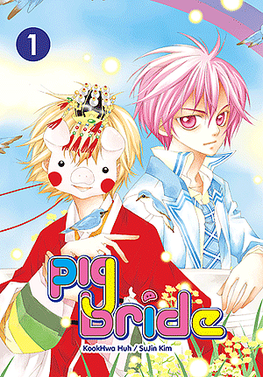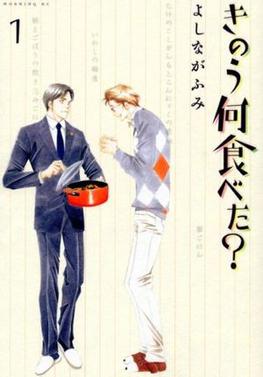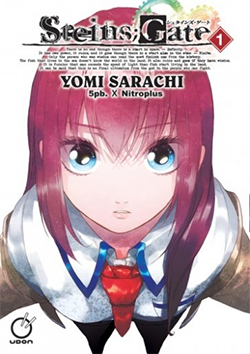
Weekly Shōnen Jump is a weekly shōnen manga anthology published in Japan by Shueisha under the Jump line of magazines. The manga series within the magazine consist of many action scenes and a fair amount of comedy. Chapters of the series that run in Weekly Shōnen Jump are collected and published in tankōbon volumes under the Jump Comics imprint every two to three months. It is one of the longest-running manga magazines, with the first issue being released with a cover date of August 1, 1968.

Scanlation is the fan-made scanning, translation, and editing of comics from a language into another language. Scanlation is done as an amateur work performed by groups and is nearly always done without express permission from the copyright holder. The word "scanlation" is a portmanteau of the words scan and translation. The term is mainly used for Japanese manga, although it also exists for other languages, such as Korean manhwa and Chinese manhua. Scanlations may be viewed at websites or as sets of image files downloaded via the Internet.

Tokyopop is an American distributor, licensor and publisher of anime, manga, manhwa and Western manga-style works. The German publishing division produces German translations of licensed Japanese properties and original English-language manga, as well as original German-language manga. Tokyopop's US publishing division publishes works in English. Tokyopop has its US headquarters near Los Angeles International Airport in Los Angeles, California. Its parent company's offices are in Tokyo, Japan and its sister company's office is in Hamburg, Germany.

Manhwa is the general Korean term for comics and print cartoons. Outside Korea, the term usually refers to South Korean comics. Manhwa is directly influenced by Japanese Manga comics. Modern Manhwa has extended its reach to many other countries. These comics have branched outside of Korea by access to Webtoons and have created an impact that has resulted in some movie, drama and television show adaptations.
An original English-language manga or OEL manga is a comic book or graphic novel drawn in the style of manga and originally published in English. The term "international manga", as used by the Japanese Ministry of Foreign Affairs, encompasses all foreign comics which draw inspiration from the "form of presentation and expression" found in Japanese manga. This may also apply to manga-inspired comics made in other languages.

Webtoons (Korean: 웹툰) are a type of episodic digital comic that originated in South Korea usually meant to be read on smartphones.

Kare First Love is a Japanese shōjo manga series by Kaho Miyasaka. It was originally serialized in Shōjo Comic from March 2002 to August 2004, and the individual chapters were published in ten tankōbon volumes by Shogakukan from September 2002 to December 2004. It focuses on the romance between the seemingly plain, shy Karin and the cool Aoi Kiriya, as they experience their first love.

Honey Hunt is a Japanese manga series written and illustrated by Miki Aihara. The series began serialization in the manga magazine Cheese! in December 2006, with the first tankobon published on June 26, 2007, and the latest volume, the 6th volume, on December 24, 2009. A spin-off manga, titled Ore wa Idol wo Yametai, began serialization in the same magazine on December 22, 2023.

Shonen Jump, officially stylized SHONEN JUMP and abbreviated SJ, was a shōnen manga anthology published in North America by Viz Media. It debuted in November 2002 with the first issue having a January 2003 cover date. Based on Shueisha's popular Japanese magazine Weekly Shōnen Jump, Shonen Jump was retooled for English readers and the American audience, including changing it from a weekly publication to a monthly one. It featured serialized chapters from different manga series and articles on Japanese language and culture, as well as manga, anime, video games, and figurines. The premiere issue of Shonen Jump also introduced the first official English translations of One Piece, Sand Land, Yu-Gi-Oh!, YuYu Hakusho, and Naruto.

Pig Bride is a manhwa written and illustrated by Huh Kook-hwa (허국화) and Kim Su-jin (김수진). The story follows Si-Joon Lee, who was tricked as an eight-year-old boy, into fulfilling a prophecy and marrying the mysterious "Pig Bride" - a young blonde girl who hides her supposedly disfigured face under a pig-faced mask. When Si-Joon turns sixteen, the Bride reappears and causes havoc, interrupting the blossoming romance between Si-Joon and classmate Doe-Doe.

What Did You Eat Yesterday? is a Japanese manga series written and illustrated by Fumi Yoshinaga. The slice of life series focuses on the relationship between Shiro Kakei and Kenji Yabuki, a middle-aged gay couple living in Tokyo, Japan. The manga has been serialized in the manga magazine Morning since February 2007, and was adapted into a live-action television drama by Shochiku that aired on TV Tokyo in 2019; a film sequel to the television drama was released in November 2021. Both the manga and its live-action adaption have received widespread critical acclaim, winning a Kodansha Manga Award, a Galaxy Award, and multiple Television Drama Academy Awards.

Butterflies, Flowers is a manga series written and illustrated by Yuki Yoshihara, serialized in Petit Comic and published by Shogakukan in bound volumes between 2006 and 2009. It is about a young woman, Choko, whose family lost their money, and her entry into the office lady workforce, working for her former servant and childhood crush, Domoto. It was licensed in English by Viz Media, in Taiwanese by Tong Li Publishing, and in French by Soleil Productions.

Genkaku Picasso is a Japanese manga series written and illustrated by Usamaru Furuya. It was serialized in Shueisha's shōnen manga magazine Jump Square from September 2008 to April 2010, with its chapters collected in three tankōbon volumes. The series was licensed for English release in North America by Viz Media and published under its Shonen Jump manga division.
Whomp! is a webcomic authored and drawn by Ronnie Filyaw. The comic centers around the life and antics of the overweight, junk-food-obsessed and socially inept nerd Ronnie, who is a fictionalized version of the author, and his roommate, Agrias.

Manga Dogs, known in Japan as GDGD-DOGS, is a Japanese manga series written and illustrated by Ema Tōyama. The story follows Kanna, a fifteen-year-old manga artist who, already published as a pro joins her school's new manga course. Trying to finish her deadlines for her ongoing running manga series, she meets three boys who ask her to teach them Manga and have delusions of their own about being manga artists. It was serialized in Kodansha's shōjo manga magazine Aria from July 2010 to December 2013, with its chapters collected in three tankōbon volumes. It was licensed for English release in North America by Kodansha USA. Overall, the series has received mixed reviews.

The Book of Human Insects is a Japanese seinen manga series written and illustrated by Osamu Tezuka. It is about Toshiko Tomura, the "Woman of Talent", who is able to leech the abilities out of people, constantly reinventing herself. The manga was originally serialized in Akita Shoten's manga magazine Play Comic from May 9, 1970 to February 13, 1971. It has been published in Japan multiple times by many publishers, in either an omnibus edition or two volumes. Vertical published an omnibus edition in North America on September 20, 2011. The manga was adapted into a seven-episode live-action drama in 2011 by WOWOW.

Steins;Gate is a Japanese manga series created by Yomi Sarachi. It is based on 5pb. and Nitroplus' video game of the same name, and is part of the Science Adventure franchise. It was serialized by Media Factory in Monthly Comic Alive from September 2009 to July 2013, and was later released as three collected volumes; these were published by Udon Entertainment in North America in 2015 and 2016, and re-release in 2022 as one volume as:"Steins;Gate: The Complete Manga". The story follows Rintaro Okabe, who together with his friends use a microwave oven and a cell phone to send text messages back in time, altering the present.

Remina is a Japanese manga series written and illustrated by Junji Ito. It was serialized in Big Comic Spirits Zōkan Casual from September 2004 to July 2005, and published in one volume.
Love Is an Illusion! is a Korean boys' love manhwa written and illustrated by Fargo. The series has an omegaverse setting and follows Hye-sung, an Omega who thought he was an Alpha until recently, and Dojin, an Alpha who can't stand Omegas. The series was serialized online via Lezhin Comics between January, 2018, and March, 2021. On February 12, 2022, a sequel, Love is an Illusion! - The Queen, began serialization.
















